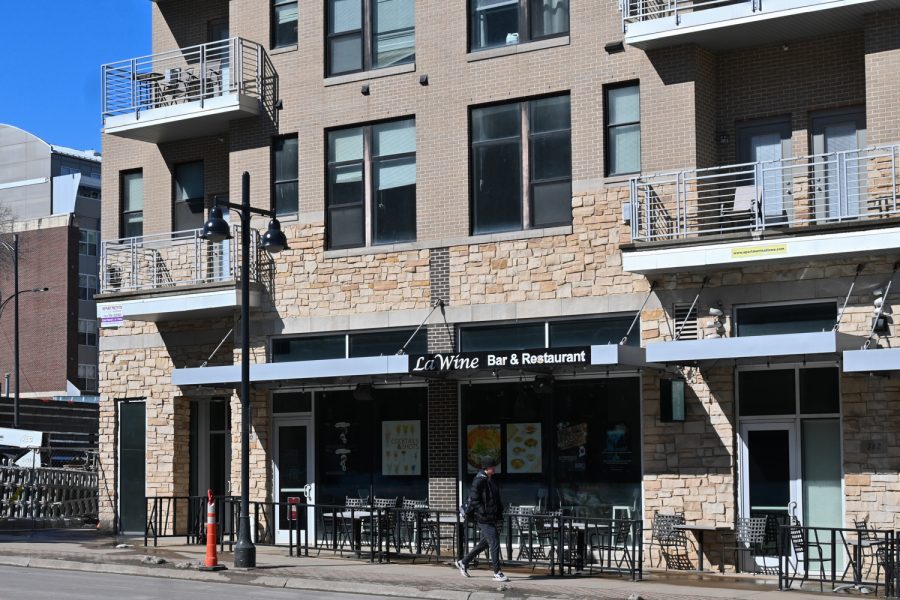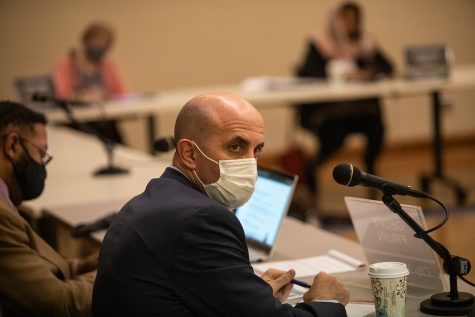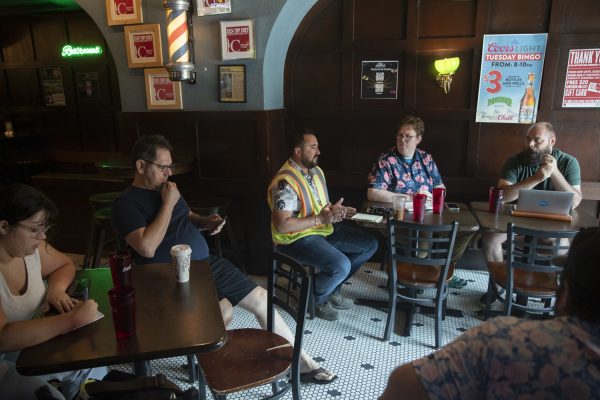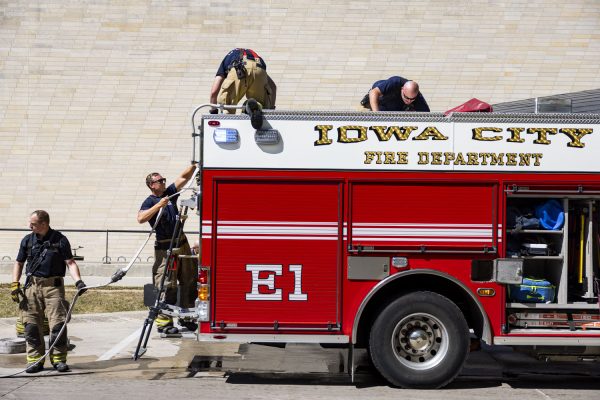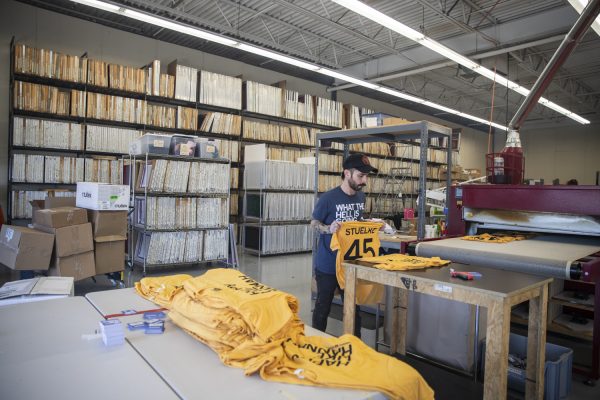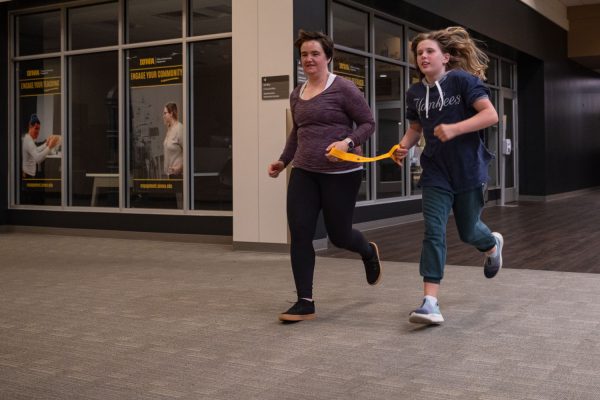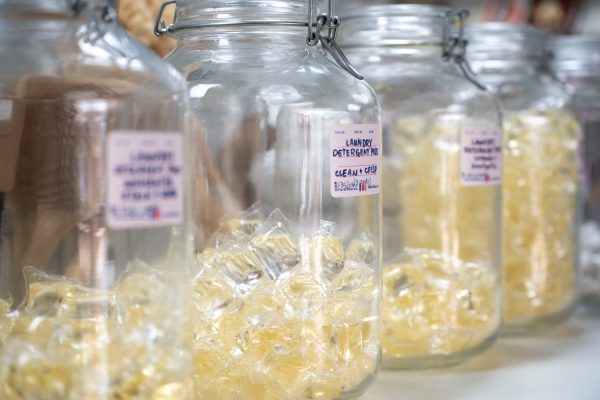Johnson County businesses stay afloat with federal aid
Johnson County businesses, like La Wine Bar & Restaurant, used federal money from the Restaurant Revitalization Fund in May 2021 to help its business survive.
LaWine Bar & Restaurant is seen on Tuesday, March 8, 2022.
March 8, 2022
Some small businesses in Iowa received federal aid through different grant programs in the last year yet are still in need of support.
Over 2,500 Iowa restaurants qualified for the Restaurant Revitalization Fund Replenishment Act. It was created directly from the American Rescue Plan Act in 2021 to help qualified businesses recover from the pandemic.
About 850 Iowa restaurants actually received the aid from the fund, Iowa Restaurant Association president and CEO Jessica Dunker said.
The program was created to help keep restaurants that were impacted by the pandemic to remain stable, she said.
“For those that really stepped up and wanted to support local restaurants, a year-and-a-half ago, we still need that support today,” Dunker said. “In some cases, because we’ve been left hanging, waiting for some of this promised assistance that never came. Today, there are some restaurants that might need it even more than they did a year ago.”
Shanshan Kong, restaurant owner of La Wine Bar & Restaurant, received the Restaurant Revitalization Fund in May 2021.
Kong said the fund was used to pay for a credit card for the restaurant that had high interest.
La Wine Bar & Restaurant also has an open stage karaoke that was rarely used in the early months of the pandemic.
“During COVID-19 we closed dining and had nothing for entertainment,” she said.
Some Iowa City businesses benefited from other federal grants.
Jerry Zimmerman and Carolyn Brown, co-owners of Maggie’s Farm Wood-Fired Pizza in Iowa City, received some funding from an Iowa Economic Development grant. The grant was funded from the Coronavirus Aid, Relief, and Economic Security (CARES) Act.
“The grant allowed us to continue operating differently than we had,” Zimmerman said. “It allowed us to build up our takeout business, and to start family dinners on Wednesdays and Sundays.”
At the beginning of the pandemic, Zimmerman said temporarily shutting Maggie’s Farm Pizza down was a shock.
“We were one of the first to close. But with the PPP and the IEDA money, it made it workable,” he said. “It made us keep everybody on.”
Dunker said the Restaurant Revitalization Fund program was nationally underfunded. With a total of $68 billion qualified food businesses, only $28 billion was dispersed.
“The program was underfunded at the time that they started giving out the funding, they prioritized businesses that were majority-owned by women, minorities, or veterans,” she said.
Dunker said the funding allowed recipients to insert the funding in their operations, and use it for payroll, carry out supplies, and even pay rent.
Zimmerman said he and Brown learned a lot about takeout, and it became an integral part of the business. He said the application process for the grant was well-publicized and easy to access
“The process for submission was also very easy and the money turned around very quickly,” he said. “It couldn’t have been a better process.”
Brown said without the state and federal help during that time, it would have been very difficult to maintain the restaurant.
“We’re really grateful and pleased to have had that opportunity,” she said.
Zimmerman added that they look forward to opening for inside dining again soon.
Dunker said she encourages consumers to offer continual support during the pandemic.
The toll on restaurants across the country has been devastating — Iowa alone was expected to lose $1.45 billion in food and beverage sales in 2020, Dunker said.
“The state of Iowa was very aggressive about trying to keep our industry operating,” she said.



